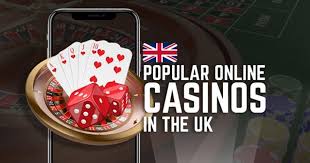
What is the Most Trusted: Exploring Reliability in Our Choices
In a world overflowing with options, whether it’s services, products, or information sources, the question arises – what is the most trusted? Trust is an essential component of our daily decisions, and understanding its foundations can help us navigate the complexities of modern life. In this article, we will delve into various categories where trust plays a pivotal role, shedding light on what makes a source or a choice truly reliable. You can also check what is the most trusted online casino uk? https://casino-jinx.com/ for insights into trustworthy online gambling experiences.
The Importance of Trust
Trust serves as the bedrock of human interaction. It fuels our relationships, dictates consumer choices, and shapes societal norms. At its core, trust can be defined as the firm belief in the reliability, truth, ability, or strength of someone or something. With the advent of the internet, trust has become even more crucial, as the vast number of options available can make decision-making feel overwhelming.
Trust in Online Platforms
In the digital realm, where anonymity reigns and interactions can often feel superficial, establishing trust becomes paramount. Websites that offer services—be it e-commerce, online gaming, or social networking—must implement security measures to protect user data. For example, secure payment gateways, clear privacy policies, and transparent terms of service are all indicators of a trustworthy platform. As the online environment evolves, consumers are increasingly seeking out platforms that demonstrate reliability through user reviews, third-party certifications, and a strong online presence.
Evaluating Online Trustworthiness
When assessing whether a website is trustworthy, several key factors are typically considered:

- User Reviews: Feedback from previous users can provide insights into the reliability and service quality of a platform.
- Security Features: Look for SSL certificates and secure payment methods to ensure data protection.
- Transparency: Companies that openly communicate their practices, such as how they handle user data, often build greater trust.
Trust in Personal Relationships
Trust is equally significant in our personal lives. It forms the basis of friendships, romantic partnerships, and professional relationships. Building trust in personal interactions requires time, consistency, and honesty. We tend to trust those who demonstrate integrity, keep promises, and communicate openly. Additionally, non-verbal cues, such as body language, play an essential role in establishing trust.
Building Trust in Relationships
To cultivate trust within personal relationships, consider the following practices:
- Open Communication: Foster an environment where individuals feel safe expressing their thoughts and feelings.
- Consistency: Being reliable and predictable boosts others’ confidence in you.
- Empathy: Understanding and validating others’ emotions enhances the sense of security in a relationship.
Trust in Brands and Businesses
Trust is a crucial asset for businesses, influencing customer retention and brand loyalty. Consumers are more likely to choose brands they perceive as trustworthy. Factors such as quality, customer service, and corporate responsibility significantly affect a brand’s credibility. In an age where consumers have vast choices, a good reputation can set a brand apart from its competitors.
Establishing Brand Trust

Brands can establish and maintain trust by:
- Delivering Quality: Consistently high-quality products/services lead to positive customer experiences.
- Engaging with Customers: Actively soliciting feedback and responding to customer inquiries fosters trust.
- Transparency in Operations: Sharing business practices and valuing ethical responsibilities help affirm a brand’s reliability.
The Role of Social Media in Building Trust
Social media has transformed how businesses and individuals build and maintain trust. Platforms like Facebook, Twitter, and Instagram provide an avenue for direct interaction between consumers and brands. This immediacy can bolster trust, as it allows for real-time feedback and engagement. However, it also has the potential for rapid dissemination of misinformation, which can undermine trust in the digital space.
Managing Online Reputation
To manage trust effectively in the age of social media, brands and individuals should:
- Monitor Conversations: Keep track of what is being said about you or your brand to address concerns promptly.
- Respond Constructively: Use feedback, both positive and negative, as an opportunity to improve.
- Share Authentic Content: Genuine, relatable content resonates more with audiences and fosters trust.
Conclusion
Understanding what is the most trusted source or relationship requires careful consideration of various factors. Whether online or offline, trust is built through transparency, consistency, and effective communication. By recognizing the essential elements that contribute to trustworthiness, we can make informed decisions across different aspects of life. As we navigate an increasingly complex world, seeking out reliable sources and fostering trustworthy relationships is more critical than ever.